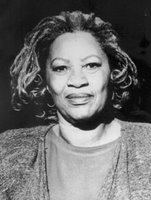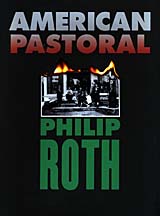The article lists seventeen other works that received significant votes from the large and impressive voting pool. These include five other Roth novels (The Counterlife, Operation Shylock, S
 abbath's Theater, The Human Stain and The Plot Against America) DeLillo's Libra and White Noise, and A Confederacy of Dunces. It also included some personal favorites that I wouldn't have expected to see on such a list, like Richard Ford's Independence Day, and Raymond Carver's collection Where I'm Calling From.
abbath's Theater, The Human Stain and The Plot Against America) DeLillo's Libra and White Noise, and A Confederacy of Dunces. It also included some personal favorites that I wouldn't have expected to see on such a list, like Richard Ford's Independence Day, and Raymond Carver's collection Where I'm Calling From.Another pleasant surprise -- the list is full of household names and books with relatively broad appeal. If you're moderately tuned into contemporary American novelists, you'll recognize most of the list. Apparently, the voters didn't feel a need to one-up each other by being edgy or contrarian. It's of course possible that 100 years from now there will be universal recognition that the best book of 1980-2006 is a work we're not thinking about today, but the Times list is solid and respectable, surprisingly devoid of shock value or controversy.
I love these kinds of lists, not because think they prove anything, but because they invite me to write my own list, and to compare and contrast. They also serve as a great suggested reading list -- I never would have picked up Anthony Powell's A Dance to the Music of Time if it hadn't been for the Modern Library poll a few years ago. Among other things, today's list makes me think that I should re-read Beloved.
Here's what my Top 5 would look like: I'd place American Pastoral at number one. It was a tense, well-told story, but also a micro-history of America after World War II, convincing and powerful and gimmick-free. I have a rough time paring down the other four, but if I throw self-consciousness, trendiness and political correctness aside, it would include Philip Roth's The Counterlife, DeLillo's White Noise, Tom Wolfe's The Bonfire of the Vanities , and Russell Banks's
 Cloudsplitter. Not the most cutting-edge list, and not many people would put Bonfire in this category, but it's still a book I read and re-read and find hilarious and joyful and exciting every time. White Noise gets written off as too self-consciously post-modern and anti-commercial, but I think it remains DeLillo's most interesting (and accessible) work, much better than the bloated and pretentious Underworld. I find DeLillo's body of work inconsistent and hit-and-miss, with White Noise his most successful book. The Counterlife's difficult narrative and self-contradictory depictions of Israel are challenging, but I also think it's a sort of condensed summary of Philip Roth's other books and intensifies the themes in his Zuckerman trilogy. Cloudsplitter, after American Pastoral , may be my favorite of the past 25 years -- a long and wild book about abolitionist John Brown, the raid on Harper's Ferry, and the Bleeding Kansas fiasco, totally persuasive in appropriating the language and morays of the mid-19th Century, and a chilling story to boot.
Cloudsplitter. Not the most cutting-edge list, and not many people would put Bonfire in this category, but it's still a book I read and re-read and find hilarious and joyful and exciting every time. White Noise gets written off as too self-consciously post-modern and anti-commercial, but I think it remains DeLillo's most interesting (and accessible) work, much better than the bloated and pretentious Underworld. I find DeLillo's body of work inconsistent and hit-and-miss, with White Noise his most successful book. The Counterlife's difficult narrative and self-contradictory depictions of Israel are challenging, but I also think it's a sort of condensed summary of Philip Roth's other books and intensifies the themes in his Zuckerman trilogy. Cloudsplitter, after American Pastoral , may be my favorite of the past 25 years -- a long and wild book about abolitionist John Brown, the raid on Harper's Ferry, and the Bleeding Kansas fiasco, totally persuasive in appropriating the language and morays of the mid-19th Century, and a chilling story to boot.My other contenders mimic the Times list so closely it's almost not worth mentioning. I'd include all of that list's Roth entries, A Confederacy of Dunces, Carver's What We Talk About When We Talk About Love, Independence Day, and two more recent favorites, Jonathan Lethem's Fortress of Solitude and Colson Whitehead's John Henry Days. Blood Meridian is a great piece of work too.
What books in the past 25 years were the most fun? I'd name Theodore Roszak's Flicker, Donna Tartt's The Secret History, and Stephen King's The Stand.
* * *
In other book news, Indonesian writer Pramoedya Ananta Toer recently died. I once saw him do a reading in Ann Arbor, and remember it more clearly than any author reading I've attended. He spent most of his life as a political prisoner, and by the time he was released and traveling to America, he was elderly, charming, and morally serious. He never made a major splash in the U.S., but was frequently mentioned as a possible Nobel Prize winner.

No comments:
Post a Comment